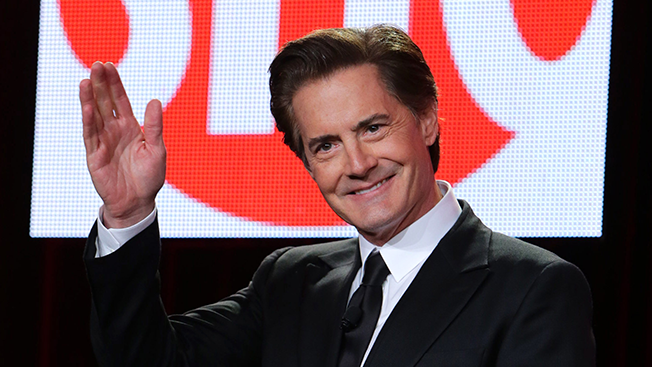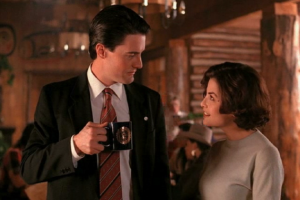As reporters covering TCA winter press tour, we don’t clap or cheer for the panelists (which often confuses those who are used to being showered with applause when they walk on stage for a large audience), but I was sure tempted to break that rule when Kyle MacLachlan came out dressed as Agent Dale Cooper to announce that he had signed on to Showtime’s upcoming revival of Twin Peaks.
Showtime Networks President David Nevins, who had previously talked with me about landing the show, shared more details about what audiences should expect from the limited series when it airs next year. As I wrote at Adweek,
Now that the deal is clinched, Nevins says his job boils down to “more or less, writing checks and leaving them alone. It’s David’s show, it’s Mark’s show, I will be the grateful recipient of it,” he said. “I will say that they have been very specific in promising closure, and that’s exciting. … From what I’ve seen, this is going to live up to expectations and then some.”
Production will begin later this year, and while locations haven’t been finalized, “I hope to go back to Washington,” where the series was shot, said Nevins.
Read the rest of the story for much more on how Nevins sealed the deal with Lynch, and why Twin Peaks represents an anomaly for Showtime.






